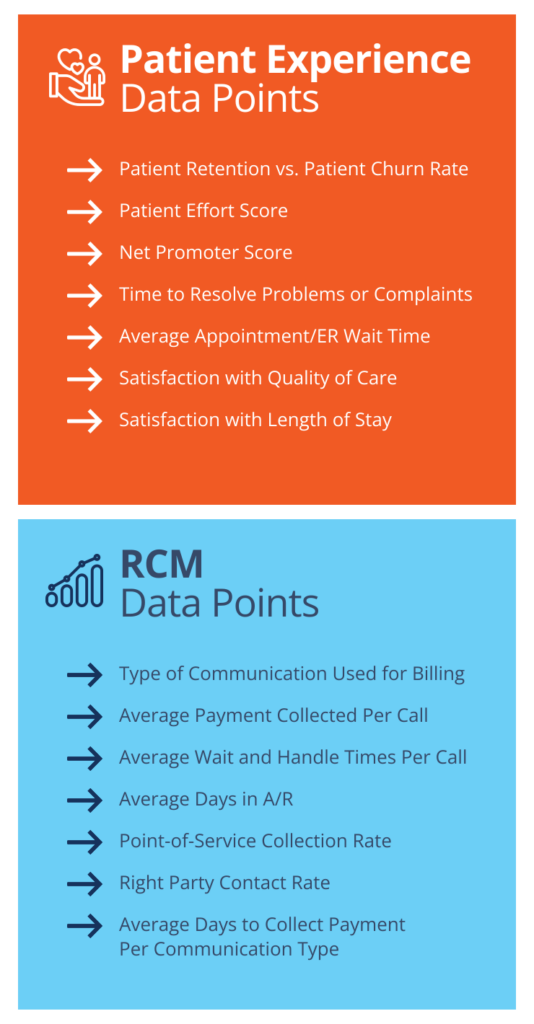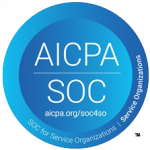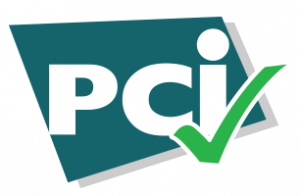Revenue cycle management (RCM) and patient experience are intricately intertwined. This is especially true in today’s healthcare landscape, where changing patient expectations require forward-thinking solutions. By adopting patient-centric RCM practices, you’ll not only see shortened debt collection cycles and improved financial health—you’ll also strengthen your relationship with your patients.

Traditionally, patient experience and RCM have been seen as separate elements of a healthcare organization’s functioning. In this way of thinking, you leave the “experience” to the patient-facing staff and allow the billing and operations teams to deal with the financials.
The problem with this model, of course, is that it’s based on a fallacy: The patient experience doesn’t end once they leave your facility or finish their appointment. It extends through every interaction they have with your organization—and that includes the repayment process.
For Revco, giving your patients a positive, compassionate repayment experience is simply how we do business. It’s not just the right thing to do, it’s also far more effective when it comes to driving results for our partners. Let’s take a closer look at how prioritizing patient experience can improve your organization’s RCM performance.
The Symbiotic Nature of RCM and Patient Experience
The connection between patient experience and revenue cycle management is a nuanced one. To start, let’s establish what “patient experience” really means.
Patient experience refers to the full spectrum of interactions that a patient has with a healthcare organization. That includes everything from scheduling appointments to receiving care from the medical staff to making payment after leaving the facility.
So, why does this matter?
According to the Healthcare Financial Management Association, healthcare organizations are now collecting 30 percent of their revenue directly from patients, up from less than 10 percent over a period of ten years. In addition to having to manage this increased financial responsibility, patients are also expecting more in terms of convenience and customer service from their medical providers, as the healthcare industry at large transforms to be more consumer-centric.
These massive changes mean that patient experience has become increasingly important to maintaining patient loyalty, protecting your organization’s brand and reputation, and attracting and retaining new patients. A compassionate, patient-centered, streamlined revenue cycle is essential for healthcare providers that want to serve patients well in this market.
Exploring the Patient-First RCM Model
The traditional RCM model was designed mainly to collect funds from payers, not individual patients.
Rather than a single-minded focus on maximizing revenue, patient-first RCM models focus on maximizing value to the patient while optimizing reimbursement and recovery rates for the healthcare provider. This means incorporating elements like:
- Understandable billing statements
- Team members who can explain a patient’s charges in a clear and respectful manner
- Adaptable and flexible repayment options
- Involving patients in their own care process, from start to finish, as much as possible
“Industry-leading technology and high-level data security measures can only go so far when recovering cash and collecting patient debt. Without a caring and compassionate team to further your patients’ experience, your patients may delay paying their medical debt and hesitate to return to your facility. Putting your patients first and ensuring an extraordinary patient experience is the Revco difference.”
–Revco Leadership Team
The Financial Impact of Patient Satisfaction
If a patient who is struggling to pay their bill feels like they’re being treated like an account number, they are less likely to want to work with the healthcare provider to pay their bill.
They are also very likely to tell other people about their bad experience and choose another healthcare provider the next time they’re in need. Further research shows a clear connection between revenue cycle patient experience and the bottom line, with hospitals that provide a “superior” patient experience recording 50 percent higher margins than those that don’t.
If patient experience isn’t at the center of your RCM practices, you’re losing out on a major opportunity to build trust with your patients, bolster your reputation, and ensure sustainable success.
performance-driving RCM insights?
Actionable Strategies for Patient-First RCM
Let’s dive into some practical strategies for making your revenue cycle more patient-centric.
Personalized Patient Financial Communications
While mailed bills are still the norm for most healthcare organizations, this doesn’t mean they’re the best choice. In fact, a report by Instamed found that 85 percent of patients would prefer an electronic payment method for bills, while 56 percent of patients would consider switching healthcare providers if they offered a better payment experience.
The takeaway is clear: Connecting with your patients in the way that they prefer is pivotal to creating a positive patient experience. Consider investing in strategies such as:
- Online payment portals that allow patients to see their bills and an explanation of charges instantly
- Text communications options
- An easy way to opt in to e-statements and email communications
Personalized communications also mean that patients receive different types of communications based on criteria such as the balance owed, the age of the balance, or the payment options they’re eligible for, in their preferred medium.
Simplifying the Payment Operation for Patients
Your patients are used to paying all their other bills electronically, from utilities to credit cards—so having to jump through hoops to pay their medical bills is only going to diminish the chances that they’ll do so promptly.
Healthcare billing best practices today include payment processes that mimic those found in the retail or consumer world: convenient, instant, and flexible.
Of those, patients want flexibility and convenience above all, so offering a variety of payment options like credit card and electronic funds transfer, as well as repayment options like installment plans, is a necessity. Patient financial engagement (PFE) software, which can help with simplifying patient payments, can be a smart investment for managing both your patients’ payment options and financial communications.
These simplifications will give your patients a frictionless payment experience, and improve your revenue cycle overall, resulting in faster payment collection and increased cash flow.
Streamlining Patient Feedback Processes
While collecting patient feedback is universally acknowledged as a critical aspect of providing an excellent patient experience, doing so efficiently can be challenging and complex.
Without that feedback, however, patients may make their voices heard in other ways—like avoiding paying a bill that they can’t get clarification on or leaving your organization altogether.
Streamlining patient feedback processes means removing as many roadblocks to engagement as possible, while at the same time providing multiple, varied ways for patients to engage with your hospital or practice.
Feedback can be solicited through methods such as:
- In-person surveys and observations while patients are within your facility
- Text and email surveys
- Comment boxes on your website or online bill pay portal, or comment cards in your facility
As with payments, it’s important to make any patient feedback requests as streamlined as possible. Texting continues to be a highly popular method of communication, with one study finding that 52 percent of patients would prefer to receive links texted to their phone over other methods of communication.
By meeting patients where they are and offering different modes of communication to meet different preferences, you’re more likely to achieve higher rates of patient feedback.
The final, and perhaps most important, step in collecting patient feedback is implementing it. Tailoring your RCM approaches to patient feedback means listening to what your patients are asking for, whether that’s an easier method for paying their bill, clearer explanations of the bills they receive, or regular bill pay reminders.
Leveraging Data to Connect Patient Experience and RCM
The wealth of data available to healthcare organizations today means that it’s easier than ever before to discern how patient experience influences RCM (and vice versa).
Data-Driven Insights for Patient Satisfaction
Patient experience data points that should be considered include:

By analyzing KPIs from both the patient experience and RCM side, you can determine correlations that may be worthy of closer attention and inform future decision-making.
Remember, past data isn’t the only type of data available—predictive analytics can also be utilized to uncover opportunities for proactively improving both patient experience and RCM.
Revco’s Patient-First Approach in Action
At Revco, our mission is to propel healthcare systems toward financial success while giving patients an always-exceptional experience.
Recently, our team partnered with a large, not-for-profit hospital in the Los Angeles area. After conducting a thorough review of their situation, we implemented a strategic Early Out program that drove a 175% increase in year-over-year cash collections. A major piece of our strategy was improving the patient experience by simplifying statements, connecting patients with an easy-to-use payment portal, and supporting them with a team of compassionate, well-trained Revco representatives.
Here’s what some of our clients have to say:
“Together, Revco Solutions and Frederick Health, one of the Trivergent Health Alliance Health Systems, collaboratively developed a combined billing statement for our hospital and medical groups, which has been a tremendous success ….Since embarking on our partnership with Revco Solutions, they have exceeded many of our expectations, including performance [and] our patient’s experience.”
– Trivergent Health Alliance Health Systems
“In 2014, Cabell Huntington Hospital selected Revco Solutions for our Early-Out Self-Pay collection needs. Revco Solutions has been very responsive to the hospital as well as the patient. When issues arise, as they naturally do, their team engages quickly and works steadily until a resolution is reached. They operate as an extension of our business office and are a partner who understands the needs of the hospital as well as patients.”
– Cabell Huntington Hospital
Elevate RCM and Patient Experience with Revco
Our patient-centric RCM services are grounded in our knowledge that your financial success emerges from the small, day-to-day interactions that your brand has with patients.
That’s why we place a unique emphasis on ensuring our representatives are empathetic, experienced, and deeply trained to maximize recovery without tarnishing the trust you’ve worked hard to build with patients.
We would love to partner with you through our patient-centered early out, debt collection, and denials management services. If you’re ready to pursue unprecedented financial health, start a conversation with us today.






